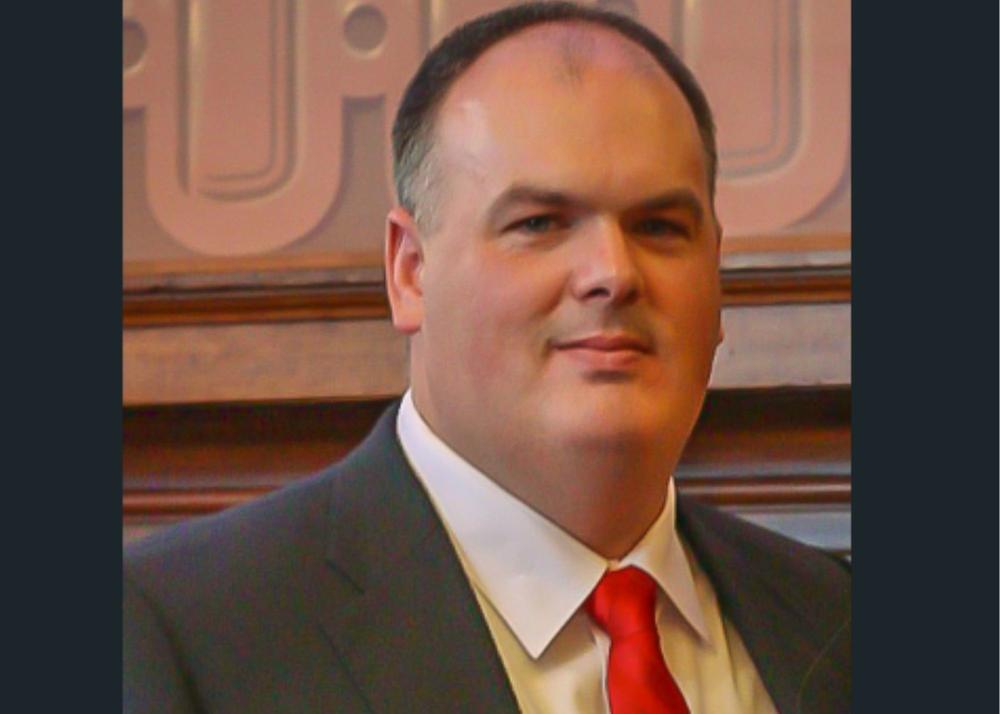Section Branding
Header Content
Georgia Lawmaker's 1st Filed Bill Would Allow Athletic Orgs To Ban Transgender Students
Primary Content
The "Student Athlete Protection Act" was recently filed in the Georgia legislature by state Rep. Philip Singleton (R-Sharpsburg). His first filed bill, HR 747, would among other things give athletic organizations the authority to prevent transgender athletes from competing in sporting events that don't match the gender assigned at birth.
GPB's Sarah Rose reports on the proposed "Student Athlete Protection Act."
The newly elected lawmaker said he is drafting more bills, but this was a priority.
"It's the only one that I pre-filed because it's so important that we get the language of the bill correct," Singleton said.
He said he wasn't familiar with any specific situations of transgender athletes receiving unfair advantages in his district, nor the state, but that his concern stems from being a parent of four children.
"I believe, as a parent, I have a reasonable expectation that when I signed my 9-year-old daughter up for girl's gymnastics, that she's going to be competing with biological girls," he said.
Singleton's inspiration for HR 747 comes from a similar bill being considered in the Tennessee legislature that, according to its summary, would prohibit schools from "accepting revised or amended birth certificates for the purposes of athletic participation."
Singleton said his bill is different because it leaves the final say up to governing athletic organizations, which was an important factor to him as a "limited government conservative."
The issue is a threat to women's equality, he said.
"We have fought for a long time to get the equalities that they have: the right to vote and the right to work and the right to participate in sports," he said. "I think it's a travesty that we're seeing this current trend. It's a travesty that a biological male could come in and could dominate a female sport."
When asked whether the bill would put the medical privacy of students at risk, Singleton said the Student Athlete Protection Act simply gives the authority to athletic organizations to make decisions on how students qualify for the sports they want to play.
Organizations would have to change language to specify transgender people are permitted on teams.
"Then the sport is no longer exclusively for girls," he said, adding it would be up to athletic organizations to determine how they would examine or verify a person's "biological gender."
He said defining language about intersex individuals would also be up to the organizations.
"If they want to allow someone that has, you know, multiple sexes, they just establish that and their rules for their organization and those rules will still apply," Singleton said.
RELATED: The 'Father Of The American Cavalry' And The Complexity Of Gender
LGBTQ organizations such as Georgia Equality have criticized Singleton's bill, but the lawmaker said he'd be willing to meet and discuss their concerns.
"I'm open to hearing from everyone so they know the intent of the bill is to make sure that everyone has the opportunity for equal play and make sure that everyone's on a fair playing field," he said.
Doraville City Councilwoman Stephe Koontz, the first openly-transgender council member in the southeast, is concerned about how athletic organizations would implement the law and sees the move as an overreach.
"I think probably the bigger problem to me is that we're going to make this a 'law,'" she said. "What's the enforcement? What are they going to do, inspect the genitals of every athlete?"
Koontz said the fears are misplaced and create a false stigma around transgender students.
"No red-blooded American guy is going to pretend to be a woman so he can compete at the women's track," she said.
She posted her concerns on Facebook that the law would be a slippery slope to enacting more discriminatory legislation.
While Koontz doesn't support the law, she agrees the issue is a complicated question.
"I don't think there's a good answer," she said. "I don't like laws being passed, but I think there does need to be something that protects non-transgender people from not having any equity in their sports programs."
Singleton said that mental health is an issue that he and his family are passionate about, but he isn't necessarily concerned about the high rates of suicide and depression among transgender students.
"Bullying is a problem across the board, so it doesn't matter what thing makes our students different that they're getting bullied for," he said.
He maintains that mental health issues among this population doesn't negate his feelings about the necessity of his bill.
"Mental health is something that's very important," he said. "But that also doesn't mean that that every student, not just the minority population groups, but that every student has a right to compete in fair competitions and have a reasonable expectation of understanding who they're going to be competing against."


